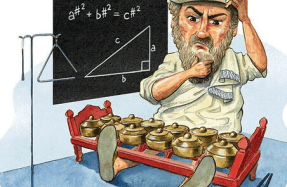
JS Bach
The Well-Tempered Clavier, Book I
Andreas Staier (harpsichord)
Harmonia Mundi HMM902680.81109:13 mins (2 discs)

Andreas Staier has already released a well-received recording of the second book of Bach’s 48, and his many fans will doubtless fall on this recording of Book I with delight. But I am having trouble with it.
He’s undoubtedly a clever technician, but here his trademark hyperactivity precludes some essential qualities in the music, most notably the quality of beauty. And he rarely seems interested in making the harpsichord sing; he doesn’t do poetry. Moreover, he isn’t helped by the acoustic for this recording, which surrounds the instrument’s sound with a hot and stuffy echo.
The little Prelude in G minor is one of the most exquisite pieces in the book, but Staier’s brusque approach banishes all thoughts of beauty, while the attached fugue has a gracelessly trudging tempo. Far worse is the punishment meted out to the profoundly expressive Prelude in B flat minor, which here lumbers along like a Sherman tank with engine trouble; the lapidary quality of its Fugue is smudged with unhelpful ornamentation.
There are moments when the didactic emphasis of Staier’s playing suits the intellectual cast of the music. And there are times – as in the 15th Prelude, and some of the longer fugues – when his virtuosity takes wing. But for contrast afterwards, I listened to Edwin Fischer’s raptly contemplative recording of the B flat minor Prelude: Staier should give




